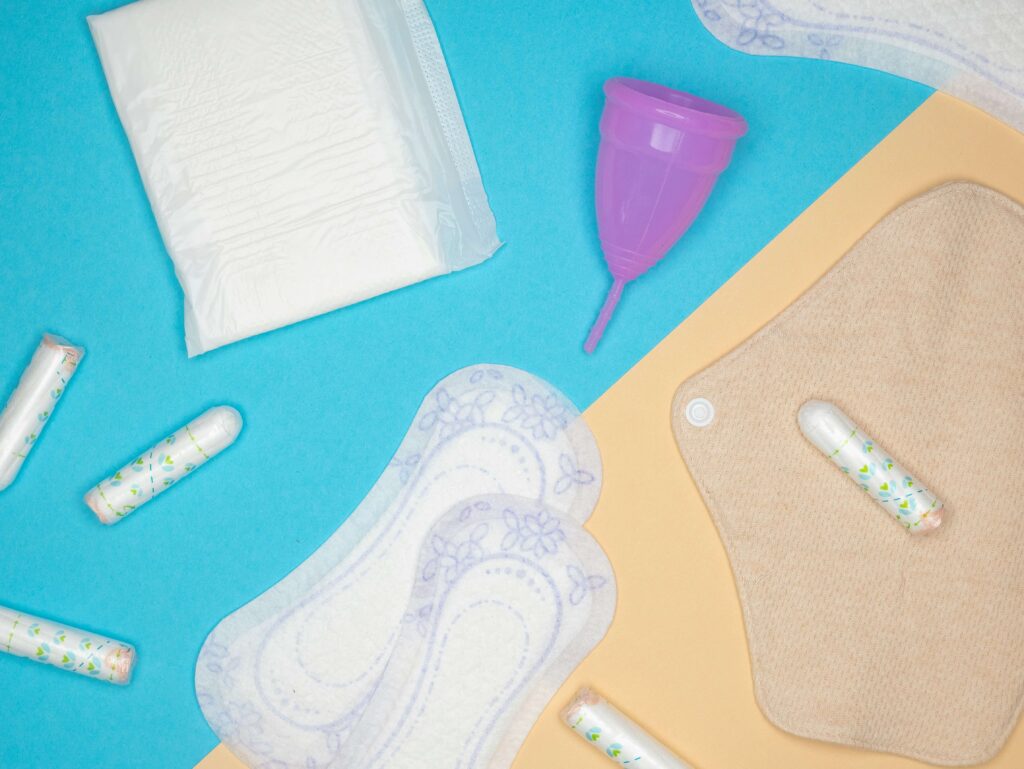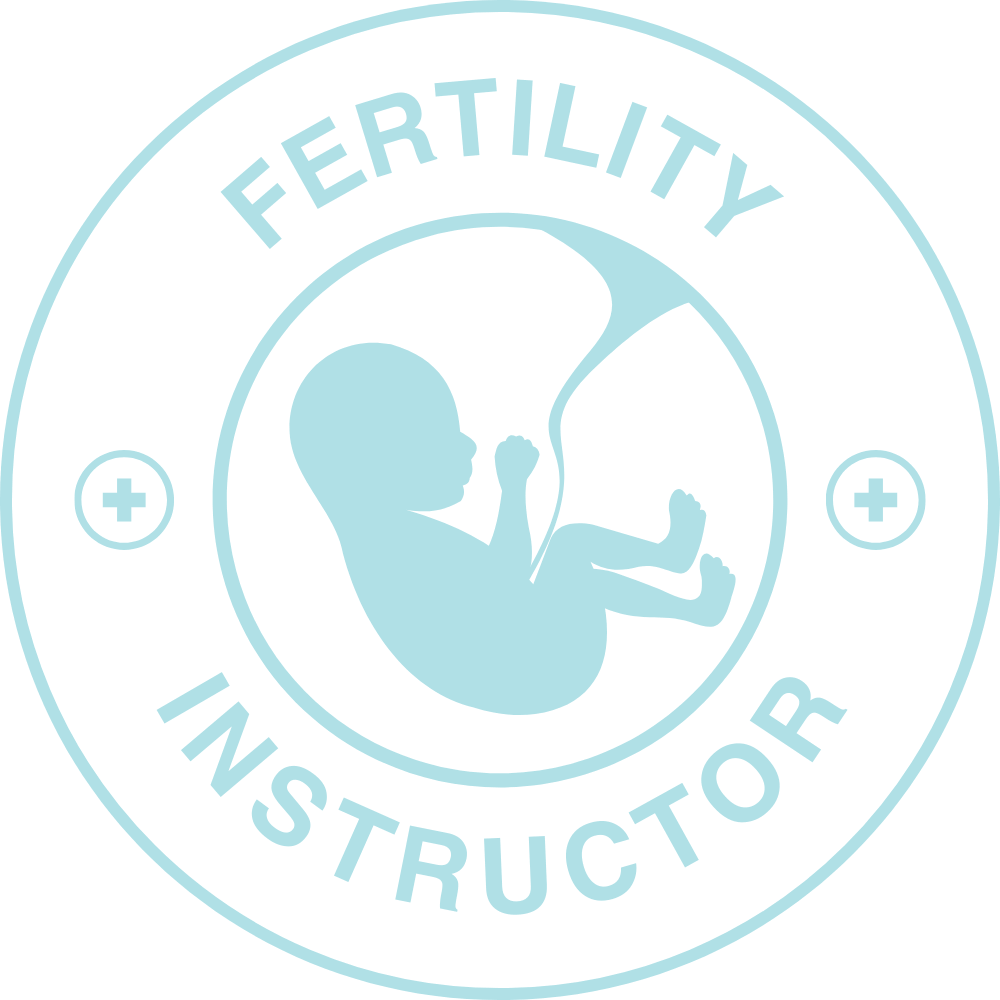
For many women, painful periods are an unfortunate monthly reality. But amid the discomfort, some have heard that these pains might be a sign of good fertility. Could this be true? Are painful periods a sign of good fertility?
If you’ve ever found yourself wondering about the connection between painful periods and fertility, you’re certainly not alone.
In this post, we’ll explore the relationship between period pain and fertility, bust some common myths, and dive into what painful periods could mean for your reproductive health.
Let’s separate fact from fiction and help you better understand what your body might be trying to tell you.
What Are Painful Periods (Dysmenorrhea)?
Painful periods, medically referred to as dysmenorrhea, are incredibly common, affecting more than half of menstruating women at some point in their lives. These cramps can range from mild discomfort to debilitating pain that interferes with daily activities.
There are two types of dysmenorrhea:
- Primary Dysmenorrhea: This refers to period pain that isn’t caused by any underlying health issue. It’s usually triggered by the production of prostaglandins, hormone-like substances that help the uterus contract and shed its lining.
- Secondary Dysmenorrhea: This type of pain is linked to underlying reproductive conditions like endometriosis, uterine fibroids, or pelvic inflammatory disease (PID). It often worsens over time and may not respond to over-the-counter pain relievers.
What Causes Painful Periods?
For primary dysmenorrhea, the main culprit is prostaglandins. These chemicals help your uterus contract, which is necessary for shedding the uterine lining during menstruation.
However, higher levels of prostaglandins can lead to more intense contractions, reduced blood flow to the uterus, and increased pain.
For secondary dysmenorrhea, causes might include:
- Endometriosis: Tissue similar to the uterine lining grows outside the uterus, leading to pain and sometimes fertility issues.
- Polycystic Ovary Syndrome (PCOS): Hormonal imbalances that affect ovulation and can cause painful or irregular periods.
- Uterine Fibroids: Noncancerous growths in the uterus that can lead to heavy bleeding and severe cramps.
- Pelvic Inflammatory Disease (PID): A bacterial infection that affects the reproductive organs and can cause long-term damage.

Are Painful Periods a Sign of Good Fertility?
Let’s address the common myth head-on: painful periods are not a guaranteed sign of good fertility.
This misconception stems from the idea that pain is linked to ovulation, which is a key part of fertility. While it’s true that some women feel ovulation pain (known as mittelschmerz), this is separate from the cramps experienced during menstruation.
Period pain, especially when severe, is more likely to indicate an underlying issue than strong fertility.
In fact, some conditions that cause painful periods, like endometriosis or PCOS, can negatively affect fertility. This makes it especially important to understand the source of your pain and not assume it’s a sign of reproductive health.
Conditions That Cause Both Painful Periods and Infertility
1. Endometriosis
Endometriosis is a condition where tissue similar to the uterine lining (endometrium) grows outside the uterus, often on the ovaries, fallopian tubes, or the pelvic lining. This misplaced tissue thickens, breaks down, and bleeds with each menstrual cycle, just like the uterine lining.
However, since this tissue has no way to exit the body, it becomes trapped, leading to inflammation, scar tissue, and adhesions.
The pain associated with endometriosis can be debilitating, often intensifying during periods. Beyond the pain, endometriosis can also impact fertility. Scar tissue or adhesions can distort the anatomy of the reproductive organs, block the fallopian tubes, or impair egg release. Even mild cases can affect implantation due to inflammation in the pelvic environment.
While endometriosis is a leading cause of infertility, many women with the condition can still conceive with medical treatments, including surgery, hormone therapy, or assisted reproductive technologies like IVF.
2. Polycystic Ovary Syndrome (PCOS)
PCOS is a hormonal disorder affecting how a woman’s ovaries function, often characterized by irregular ovulation, excess androgen (male hormone) levels, and multiple small cysts on the ovaries. The hormonal imbalances disrupt ovulation, leading to irregular or missed periods that can sometimes be painful.
This condition often results in difficulties conceiving, as consistent ovulation is crucial for pregnancy. Additionally, the hormonal imbalances can affect the uterine lining, further complicating implantation even if ovulation occurs.
Early diagnosis and management are essential. Lifestyle changes, such as weight management and a healthy diet, can help regulate ovulation and reduce symptoms. In more severe cases, fertility medications like Clomid or letrozole are often effective in promoting ovulation.
3. Uterine Fibroids
Uterine fibroids are non-cancerous growths that develop in or around the uterus. Their size and location can vary greatly, and they’re often linked to symptoms such as heavy bleeding, severe cramping, pelvic pressure, and prolonged periods.
Fibroids can interfere with fertility in several ways. Large fibroids may distort the uterus, making it difficult for an embryo to implant or grow. They can also block the fallopian tubes or disrupt blood flow to the uterine lining, both of which can hinder conception or increase the risk of miscarriage.
Fortunately, fibroids are treatable. Medications, non-invasive procedures like uterine artery embolization, or surgical removal (myomectomy) can improve fertility outcomes in affected women.
4. Pelvic Inflammatory Disease (PID)
PID is an infection of the female reproductive organs, usually resulting from untreated sexually transmitted infections (STIs) such as chlamydia or gonorrhea. The infection can spread to the uterus, fallopian tubes, and ovaries, causing inflammation, scarring, and abscesses.
The damage caused by PID often results in chronic pelvic pain, particularly during menstruation or sexual activity. In severe cases, scarring in the fallopian tubes can block the path of eggs, increasing the risk of infertility or ectopic pregnancy (where the embryo implants outside the uterus).
Early treatment of PID with antibiotics can prevent long-term complications. Women with significant damage may require surgical intervention to remove scar tissue or unblock the fallopian tubes.
Can Painful Periods Be a Sign of Good Fertility?
While the myth persists, the reality is that painful periods aren’t a reliable indicator of fertility. Fertility depends on many factors, including regular ovulation, healthy hormone levels, and the absence of reproductive disorders.
If you’re concerned about your fertility, other signs are more reliable, such as:
- Regular menstrual cycles (about 21–35 days).
- Predictable ovulation, which you can track through symptoms like cervical mucus changes or ovulation predictor kits.
- Normal hormone levels, which can be assessed through blood tests.
Tips for Managing Painful Periods
If painful periods are affecting your quality of life, thankfully, there are ways to manage them:
- Stay Active: Regular exercise can reduce period pain by boosting circulation and releasing endorphins, which are natural painkillers.
- Apply Heat: A heating pad or warm bath can relax the uterine muscles and ease cramps.
- Eat Anti-Inflammatory Foods: Incorporate foods like salmon, walnuts, and leafy greens to reduce inflammation.
- Over-the-Counter Pain Relief: Nonsteroidal anti-inflammatory drugs (NSAIDs) like ibuprofen can block prostaglandin production.
- Consult a Doctor: For persistent or severe pain, seek medical advice. You may need a more targeted treatment plan, such as hormonal therapy.
How to Assess Fertility Accurately
If you’re trying to conceive or want to understand your fertility better, consider these steps:
- Track Ovulation: Use ovulation predictor kits or basal body temperature charts.
- Consult a Fertility Specialist: If you’ve been trying to conceive for over a year (or six months if over 35), it’s time to seek professional help.
- Undergo Testing: Fertility assessments might include blood tests, ultrasounds, or semen analysis for male partners.
Conclusion
So, are painful periods a sign of good fertility? The answer is no. While period pain might feel like a sign of a “working” reproductive system, it’s not an accurate measure of fertility.
Painful periods can sometimes signal underlying conditions that may affect fertility, making it essential to pay attention to your body and seek medical advice when needed.
By understanding the causes of period pain and taking proactive steps to manage it, you can improve both your quality of life and your reproductive health.
If you’ve ever wondered about your painful periods or have experiences to share, drop a comment below—we’d love to hear from you!
